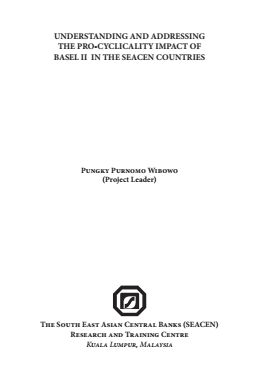One of the central pillars of the new Basel-II regulatory framework is the concept of risk-based capital requirements. In this regard under the internal-rating-based (IRB) approach the amount of capital that a bank will have to hold against a given exposure will be a function of the estimated credit risk of that exposure. One important concern is that the new regulatory capital requirement (CAR) will exacerbate business-cycle fluctuations. In this regard in a downturn when a banks capital base is likely to be eroded by loan losses the existing (non-defaulted) borrowers will be downgraded by the relevant credit-risk models forcing the bank to hold more capital against its current loan portfolio. As a result it would be quite costly for banks to raise fresh external capital in down times. Banks would be forced to cut back on lending activity (bank lending channel) thereby contributing to a worsening of the initial downturn. Based on the empirical studies for several SEACEN countries we find that there is no strong evidence that there is pro-cyclicality impact of Basel II implementation. Nonetheless SEACEN countries must give serious consideration to their economic situations especially in case of unfavourable developments when implementing Basel II for their banking sectors.
-
About Us
-
Events
-
Publications
-
About The SEACEN Centre
-
The Centre's Governance
-
Courses

